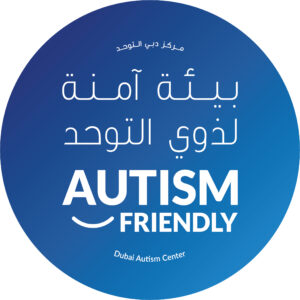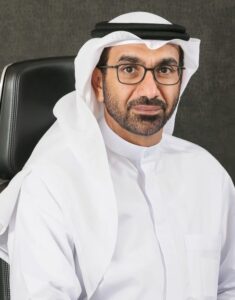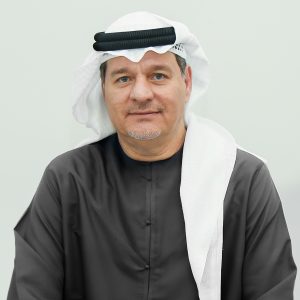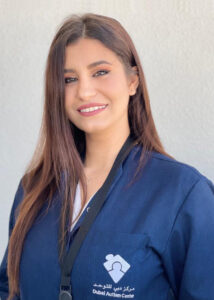Dubai Autism Center announces the launch of the first cycle of the Autism-Friendly Program
- The program contributes to embodying the vision of transforming Dubai into a friendly city for people of determination.
- The tasks of the program include training, counseling, and field auditing of factors to achieve a friendly environment for people with autism
In line with the goals of the National Autism Policy, and within the framework of the “My Community, A Place For Everyone” initiative launched by His Highness Sheikh Hamdan bin Mohammed bin Rashid Al Maktoum, Crown Prince of Dubai and Chairman of The Executive Council of Dubai, to transform Dubai into a friendly city for people of determination, the Dubai Autism Center (DAC) announced the launch of Autism-Friendly Program (AFP) in its first cycle to be the first initiative of its kind in the region, which aims to recognize the role models of organizations in public and private sectors and encourage community to embrace higher accessibility standards for individuals with autism.


Hisham Abdullah Al Qassim, Chairman of the Dubai Autism Center,
said: “In accordance with the awareness objectives of Decree No (26) of 2021, issued by His Highness Sheikh Mohammed bin Rashid Al Maktoum, Vice-President and Prime Minister of the UAE and Ruler of Dubai, the Dubai Autism Center launched this initiative in order to improve institutional services and facilities to ensure that people with autism have access to the services they seek in various sectors, just like others,”
Mohammed Al Emadi, Director General of the Dubai Autism Center and Board Member
said: “People with autism face many challenges when they are in public places such as hospitals, shopping centers, parks, and airports. Most of these challenges may be due to their unfamiliarity with the place or procedures, in addition to their inability to anticipate what might happen next,”

“This program is designed to encourage more institutions to provide welcoming spaces for individuals with autism in various places around the UAE such as hospitals, shopping centers, parks, and airports by providing a set of training workshops and advisory services on the factors of achieving a safe and friendly environment for people with autism, in order to obtain the program’s evaluation with a validity of one year,” Al Emadi stated.
Al Emadi called for the solidarity and cooperation of government and private sectors’ institutions and all members of society in order to provide appropriate environments for the needs of people with autism to empower and integrate them into society.
On the environmental factors affecting people with autism, Al Emadi explained that the brain functions of people with autism work differently from our brains, indicating that people with autism have a different way of perceiving things and situations around them, so they need prepared environments to visit all places in our community and be able to have the same experience as everyone else.

For her part, Eman Abushabab, Community Outreach Manager at the Dubai Autism Center, said: “The program’s organizing committee works on managing various tasks, including training, counseling, and then field audits to check that the expected measures are implemented efficiently to achieve a safe and friendly environment for people with autism,”
Abushabab revealed that since last April, the organizing committee has carried out an introductory campaign on the program for a number of government and private entities, stressing that it was greatly welcomed and the interest in joining this program was growing since that time.
She stated that the committee had received a number of participating requests from different organizations, where we had to conduct a number of training workshops attended by more than 1500 employees.
Abu Shabab asserts that the process of granting the Autism-Friendly Certificate is based on specific criteria for each area of the program, in addition to the fact that the evaluation methodology that is applied ensures that more than one assessor reviews and evaluates to investigate objectivity.
She added that the final stage of the evaluation process includes interviews and field visits to the applicants to verify the eligibility of the entity for the classification certificate.
Abushabab explained: “Entities that have Autism-Friendly Certificate are subject to evaluation once a year, in addition to conducting a questionnaire about the level of customer satisfaction and studies based on the mystery shopper approach, usually represented by the families of people with autism.. Based on this evaluation, the validity of the classification will be approved for a similar year”.
